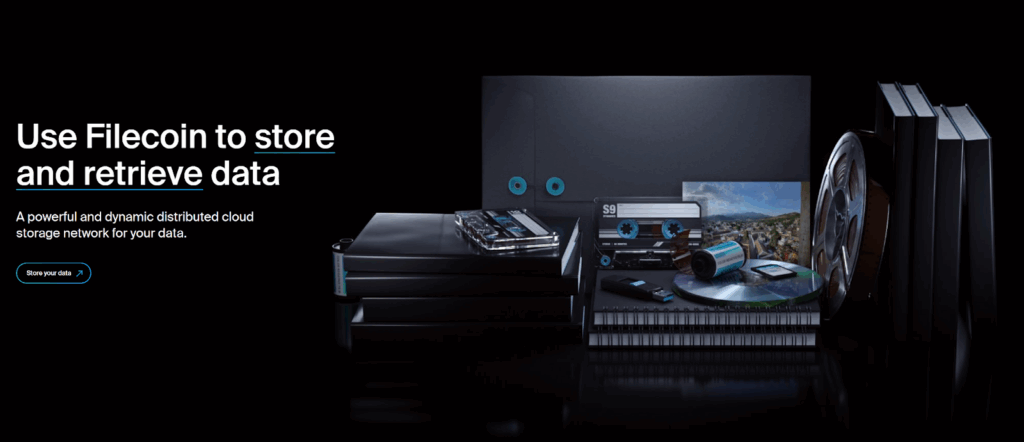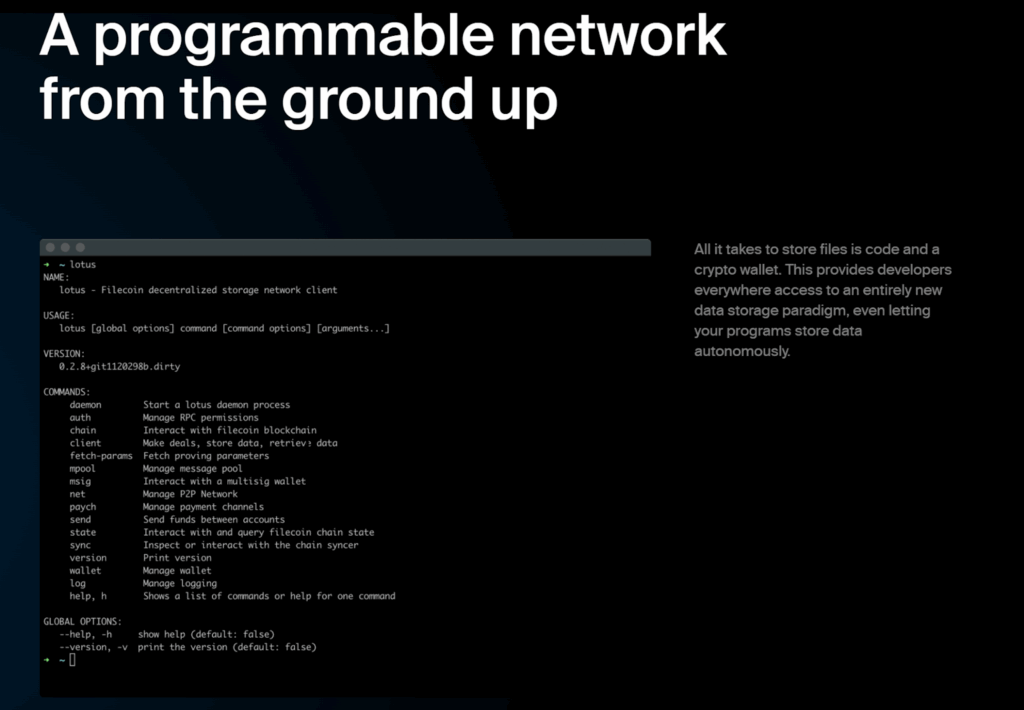- Filecoin transforms idle storage into a global, verifiable, and programmable marketplace.
- Upcoming upgrades like IPC and PDP make it competitive for AI and enterprise use cases.
- FIL could be undervalued as adoption ramps across Web3, DeFi, and institutional storage.
Filecoin, the decentralized storage network born from Protocol Labs, has become one of the most ambitious attempts to reimagine the backbone of the internet. While today’s web relies heavily on centralized cloud giants to safeguard data, Filecoin sets its sights higher: a peer-to-peer system where unused storage capacity transforms into a global market, secured by cryptography and fueled by incentives. It is not just about cheaper storage, but about resilience, permanence, and freedom from gatekeepers. So, let us take a closer look at what makes Filecoin a unique and evolving force in the decentralized infrastructure stack.

What Is Filecoin?
At its core, Filecoin is a decentralized, blockchain-based network that allows users to store, retrieve, and monetize data across a global ecosystem of independent providers. Unlike centralized platforms such as AWS or Google Cloud, Filecoin distributes responsibility among thousands of participants, ensuring no single authority controls data availability. Clients pay in the native token FIL to store files, while providers earn FIL for offering capacity and proving that data remains secure and accessible.
Essentially, Filecoin was designed as the incentive layer for the InterPlanetary File System (IPFS), a protocol that introduced content addressing as a way to uniquely identify and retrieve data without relying on centralized servers. IPFS made decentralized storage possible, but Filecoin gave it teeth by introducing economic incentives that ensure persistence and reliability.

Core Components
Filecoin has a layered architecture of technologies all working hand in hand to create a reliable, verifiable, and scalable decentralized storage ecosystem. This includes:
Proof-of-Replication (PoRep)
PoRep ensures that storage providers are holding unique, sealed copies of client data. This mechanism is foundational for cold storage, where data integrity and redundancy are paramount. It prevents providers from cheating by storing duplicate data and claiming multiple rewards.
Proof-of-Spacetime (PoSt)
PoSt verifies that data remains stored over time. Providers submit regular proofs to demonstrate ongoing storage, and failure to do so results in slashed collateral. This mechanism guarantees long-term reliability and is essential for archival use cases.
Proof of Data Possession (PDP)
PDP is the newest addition to Filecoin’s arsenal, enabling verifiable hot storage. It allows providers to prove they hold immediately accessible data without unsealing or retrieving it. PDP supports mutable datasets, sub-second access, and scheduled verification challenges, making it ideal for AI workloads, dApp frontends, and media delivery.
Filecoin Blockchain
The Filecoin blockchain tracks all transactions, storage deals, and proofs. It ensures transparency, accountability, and verifiability across the network. By aligning incentives through cryptoeconomics, the blockchain keeps providers honest and punishes misbehavior through collateral slashing.
Filecoin Virtual Machine (FVM)
FVM brings smart contract functionality to Filecoin. It supports over 4,700 unique contracts and millions of transactions, enabling DeFi protocols, programmable SLAs, and composable data logic. FVM transforms Filecoin from a passive storage layer into an active computational platform.
Interplanetary Consensus (IPC)
IPC introduces hierarchical subnets that execute transactions in parallel. This framework addresses scalability challenges and supports heterogeneous applications. IPC is currently live on Spacenet and is expected to reach mainnet in 2026.

What Problems Does It Solve?
Filecoin tackles several issues in the data economy, including:
- Centralization of Cloud Storage – Traditional cloud providers concentrate data in a few corporate-controlled data centers, creating single points of failure and censorship risks. Filecoin distributes data globally, enhancing resilience and sovereignty.
- Lack of Verifiability – Centralized platforms offer no cryptographic guarantees that data is stored or retrievable. Filecoin’s proofs ensure that data is not only stored but provably available.
- Underutilized Storage Resources – Millions of terabytes sit idle in data centers and personal devices. Filecoin monetizes this unused capacity, creating a global supply-side market.
- Limited Programmability – Legacy storage systems are static and siloed. Filecoin’s FVM enables programmable logic, allowing developers to build dynamic, data-driven applications.
- Slow Access in Decentralized Systems – Decentralized storage has historically suffered from latency. PDP solves this by enabling sub-second access to hot data with cryptographic assurance.

Utility and Offerings
Filecoin’s utility spans far beyond basic storage. Key utility offerings include:
FIL Token
FIL is used for payments, collateral, and governance. It powers the storage and retrieval markets and supports smart contract execution.
Decentralized Storage
The flagship service of Filecoin is verifiable, decentralized storage. This is not simply replication across data centers, but a cryptoeconomically secured system where clients can ensure their data remains intact and available.
Retrieval Market
Filecoin supports retrieval providers who specialize in serving data quickly. This complements long-term storage providers by ensuring users can access files efficiently without bottlenecks.
Programmable Storage with FVM
Through the Filecoin Virtual Machine, storage deals can be automated, bundled with other DeFi services, or integrated into cross-chain ecosystems. This unlocks financialization of storage itself, enabling innovations like FIL-backed stablecoins and tokenized datasets.
Hot Storage via PDP
The newest layer, hot storage, provides low-latency access with verifiable proofs. This is particularly useful for AI training sets, media delivery, developer environments, and dynamic web applications. It makes Filecoin competitive not just as an archival network but as a full-spectrum storage service.
Filecoin Network Services (FWS)
Expanding beyond storage, Filecoin is evolving into a decentralized cloud marketplace. FWS introduces programmatic service level agreements, composable proofs, and verifiable pipelines that mirror the functionality of traditional cloud providers but with transparency and decentralization.

Ecosystem Highlights
Filecoin’s ecosystem has expanded rapidly, attracting builders, institutions, and researchers. Some key highlights include:
- AI and Compute Integration – Projects like AethirCloud and SingularityNET use Filecoin for verifiable AI training data. PDP ensures datasets are available for fine-tuning and inference.
- Blockchain Partnerships – Solana and Cardano archive chain data on Filecoin, enhancing redundancy and compliance. Flow blockchain integrates Filecoin for NFT metadata storage.
- Cultural Preservation – Institutions like Internet Archive and Shoah Foundation use Filecoin for decentralized archiving of historical and human rights datasets.
- Web3 Adoption – Platforms like Audius and Huddle01 use Filecoin for music and video streaming.
- Institutional Interest – Institutional interest has been strong, with storage providers ranging from independent operators to professional data centers.
Roadmap and Plans Ahead
Looking ahead, Filecoin’s roadmap is stacked with transformative upgrades. Key initiatives include:
- Interplanetary Consensus (IPC) – Mainnet release expected in 2026. IPC will enable parallel execution across subnets, solving scalability bottlenecks and supporting heterogeneous workloads.
- PDP SPX Program – The network will focus on scaling PDP adoption through the SPX program, onboarding globally distributed providers to stress-test hot storage under real-world conditions.
- Expanded Layer 2 Ecosystem – New protocols will support AI, gaming, and unstructured data, enhancing Filecoin’s role in powering next-generation applications.
In addition to this, Filecoin aims to solidify its position not only as a decentralized storage leader but as a decentralized cloud platform. By combining archival reliability, hot data performance, and programmable services, Filecoin is positioning itself as the backbone of a new internet infrastructure designed to handle AI, DeFi, cultural preservation, and enterprise-grade workloads.
Final Thoughts
In conclusion, Filecoin is a programmable, scalable, and verifiable data infrastructure for the modern internet. And with IPC scaling on the horizon, the network is ready to handle AI workloads, Web3 applications, and enterprise-level data with unmatched verifiability and performance. So, as adoption accelerates and the ecosystem matures, Filecoin is set to turn decentralized storage from a niche innovation into a practical, high-performance infrastructure that challenges centralized cloud dominance and redefines how the world stores, retrieves, and interacts with data.














